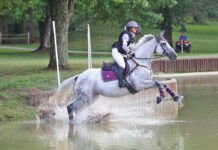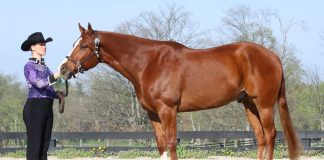Knabstrupper
The Knabstrupper was developed by Major Villars Lunn in Nordsealand, Denmark, who put a chestnut blanketed mare of Spanish breeding to a Fredricksborg stallion in 1812. This first breeding resulted in a colorfully spotted colt and the basis for a new breed. Historically, the Knabstrupper was cherished by royalty and noblemen and used for leisure pursuits and in festivals. They were also used as cavalry horses for the officers. One of the Lipizzan’s foundations stallions, Pluto, was a Knabstrupper. After World War II, the Knabstuppers were commonly used in circuses throughout the world. Today, the horses are valued as top dressage horses and are also found in eventing and show jumping.
Characteristics:
The most popular spotted pattern is the full leopard, which is solid white with black or brown spots. There are three types of Knabstruppers: the Sport Horse type, which due to its crossing with European warmbloods, excels in English sports. The Baroque type is more traditional in build and resembles the old style circus horse. The Pony type is a smaller version of the Baroque and is a popular child’s mount. Knabstruppers average 15.2 to 16 hands high.
For more information:
American Knabstrupper Association, www.knabstruppers.com





